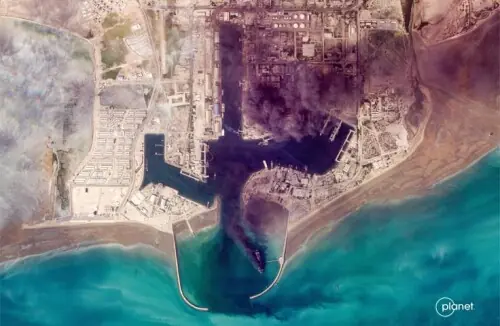 QUETTA, June 27: The noted lawyer and one of the Muslim League old guard, Yahya Bakhtiar, died here on Friday morning at the age of 81, family sources said.
QUETTA, June 27: The noted lawyer and one of the Muslim League old guard, Yahya Bakhtiar, died here on Friday morning at the age of 81, family sources said.
He leaves behind his wife, Eva, and two sons and two daughters.
His sons Dr Salim Bakhtiar and Dr Karim Bakhtiar are settled in the US while his daughters, Zeba Bakhtiar and Saira Bakhtiar, live in Karachi with whom Mr Yahya Bakhtiar spent most of his time. He had come to Quetta only four days ago, and although a heart patient, he was apparently in good health.
According to the family, he developed a temperature in the morning and died soon afterwards.
He will be laid to rest in the family’s ancestral graveyard of Killi Sheikhan in Quetta on Saturday morning.
Yahya Bakhtiar had obtained his early education in Quetta and Lahore and later gone to London to study for the Bar. He became a member of the All-India Muslim League in 1941 and was elected as a council member of the party and vice-president of the Muslim Students Federation in 1943.
He was the first person to challenge Ayub Khan’s martial law in the Supreme Court in 1958. He joined the Pakistan People’s Party in 1974 after leaving the Council Muslim League. He also remained vice-chairman and member of the PPP central committee and president of the Balochistan PPP.
Mr Bakhtiar was attorney-general when Z.A. Bhutto was prime minister and later headed the legal team that led a spirited but ultimately futile court battle to save Mr Bhutto from the gallows.
Mr Bakhtiar was elected as an MNA from the Quetta-Pishin constituency in 1977. He was also a senator.
He had played an important role in the framing of the 1973 consensus Constitution in his capacity as attorney-general. Throughout his life he appeared in important constitutional cases. The first such case was decided in 1958 in which the Federal Court, headed by Justice Mohammed Munir, had justified the military take-over on the basis of the doctrine of necessity. Mr Bakhtiar had represented one of three private respondents, and had opposed validation of the military take-over.
He had also filed constitutional petition challenging the imposition of a martial law by General Ziaul Haq. The court dismissed the petition on technical grounds, but allowed the military ruler to legislate. The case is known as Begum Nusrat Bhutto vs Chief of Army Staff.
Mr Bakhtiar represented Mr Bhutto at the appeal stage after the Lahore High Court had awarded the death sentence to the deposed prime minister.
Mr Bakhtiar was arrested and tortured in jail during the period of Gen Zia, his family once receiving his blood-stained clothes from jail.
He was appointed attorney-general again when Ms Benazir Bhutto became prime minister in 1988. He filed a case in the Supreme Court when a dispute arose on whether judges were to be appointed to the superior court on the advice of the prime minister or by the president in his discretion. The petition, after lengthy hearing, was withdrawn.
He also represented Mian Nawaz Sharif in the Supreme Court when then President Ghulam Ishaq Khan dissolved the National Assembly by using his powers under Article 58(2)(B).
He had conducted the proceedings of the committee of the National Assembly to consider the Ahmadi question.
Mr Bakhtiar contested elections on three occasions, and won once. He had himself questioned his victory in the 1977 elections, and written a note to Mr Bhutto saying if it had not been his own government he would have resigned from his seat, as there was no election in his constituency.
He was convicted and disqualified by an election tribunal on charges of electoral mal-practices. He was later acquitted by the Supreme Court.
Mr Bakhtiar represented Pakistan on the International Court of Justice where the issue of Pakistan’s prisoners was taken up.
He again represented the country at the ICJ when Sir Zafarullah Khan retired as the ICJ president.
































